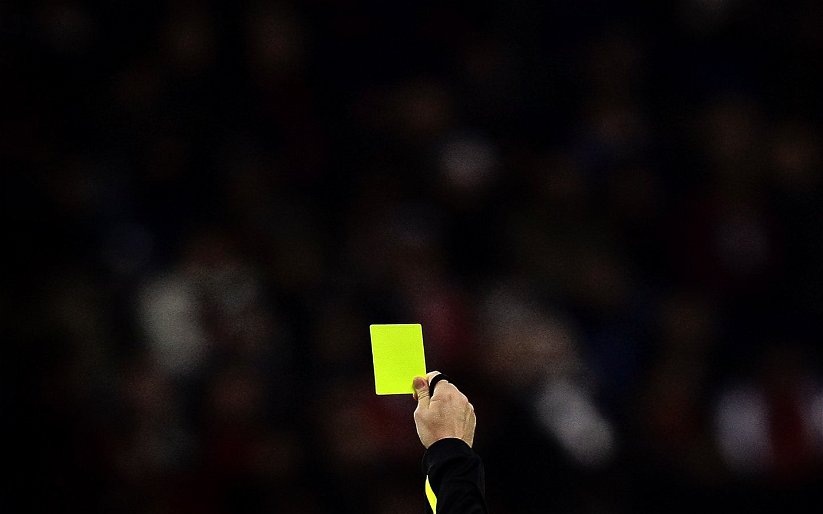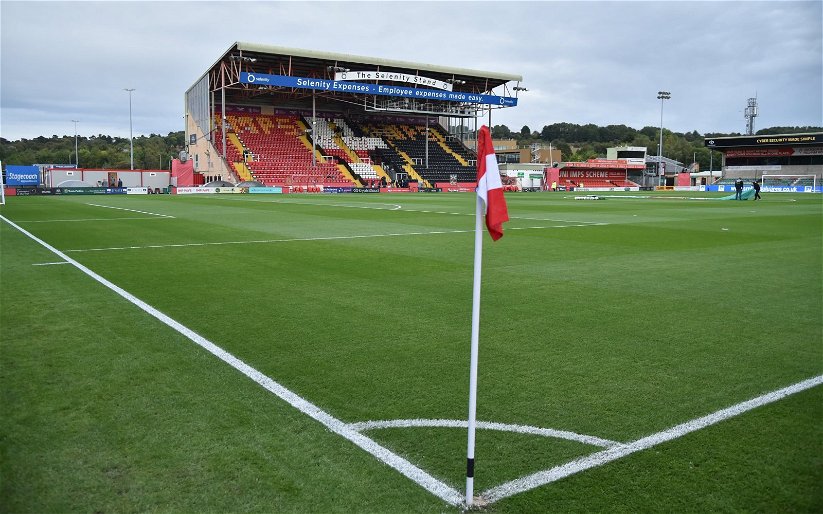Obituary – Jock Dodds (7/9/1915 – 24/2/07)
What a player Jock was, big strong and quick reaching 100 league goals in 154 appearances. In Imp terms add one Mark Stallard, one Jamie Forrester, one Nat Brown and the pace of Spencer Weir-Daly. Jock graced us at the end of a fantastic career scoring 39 times despite wearing the red and white only 60. Of all the names linked to the terrace chant ‘? is a goal machine` Jock Dodds was first and foremost.
Ephraim Dodds or ‘Jock’ as he was affectionately known was born in Grangemouth Scotland. Whilst at Bargeddie Public School young Ephraim was introduced to the national obsession of footbah. After the death of father his mother remarried, moving the family down to Durham. Here the promising forward continued his football career with Shellmex and Medomsley Juniors in Consett, winning representative honours with Durham Schoolboys.
Huddersfield Town manager Clem Stephenson signed him in 1931 as a 16-year-old. Commitment for a young aspiring player in those days meant a four mile stroll to the ground, same again going home for lunch, before repeating the walk to cut the grass and undertake other ground staff tasks in the afternoon. . His phenomenal pace soon saw him become a professional following year, playing two seasons in the reserve side., Huddersfield reluctantly released him on a free transfer after the 1933/34 season as they had their quota of 34 professionals and, the ever modest and down to earth Scot`s own words ‘I hadn’t come on as well as some of the others.’ They missed a gem Jock! (Huddersfield Appearances 0 Goals 0)
Sheffield United signed him on a free, his debut coming on 15/9/1934, against Burney. Despite playing and scoring regularly, the club was unconvinced that he was yet of first-team quality. So they made an enquiry for ex- hero Jimmy Dunne who was out of favour at Arsenal. This came to nothing when it transpired he had a cartilage injury. Jock scored four that Saturday in a 6-1 victory against Southampton. He famously hit the crossbar with a bullet header against the all-conquering Gunners in the following years cup final, as the Blades were blunted 1-0.
(Sheffield United Appearances 178 Goals 113)
In 1939 Blackpool signed him for a whopping £10,500. He duly scored on his debut against Charlton but the outbreak of war curtailed his Seaside`s football league career. However wartime football saw a regionalisation of the national game. Huge crowds witnessed competive action. Blackpool won the Northern Division title twice plus the Northern Cup. A special North V South challenge cup saw them defeat Arsenal. In 157 games he netted an incredible 230 goals, including an eight, a seven, two sixes and three or four on a remarkable 20 occasions. Against Stockport County when Blackpool won 9-2 Jock scored eight despite missing a penalty.
(Blackpool Appearances 15Goals 13 Wartime appearances 157 Goals 230)
Everton now without the services of Dixie Dean and Tommy Lawton moved in for him in 1946. Once the war was over, ‘Jock’ had returned to Blackpool where he had married and set up business. But there was a minor dispute with the club and he ended up playing at Shamrock Rovers. The Irish side were delighted to have signed him and gave him a nice little bonus for joining them but after a handful of games for the club, in which their investment paid off handsomely with huge crowds attending their games, FIFA ordered ‘Jock’ to return to Blackpool. This he did and Sheffield Wednesday and Everton were keen to sign him. ‘Jock’s’ comment at the time was ‘If Blackpool want to transfer me, and presumably they do – I will go anywhere within reason. Everton? Sheffield Wednesday? Yes, if terms can be settled.’ And ‘Jock’ joined Everton for a fee of £8,250 in November 1946.
(Everton Appearances 58 Goals 37)
After almost two years at the club he was transferred to ambitious second division club Lincoln City. Bill Anderson, an old friend of Jocks, was manager with crowds approaching 18,000. The superstar cost ambitious Lincoln a club record £6,000 and would put them on the Map. Indeed contemporaries described Jock as ‘easily the biggest name ever to join Lincoln City’. The City emptied as seven thousand Imps travelled to watch his debut at Grimsby. At two down Jock scored two to earn the draw. He finished the season as top scorer with 18. He was Lincoln’s top scorer again with 21 goals in the 1949/50 seasons before leaving in 1950. Jock then got involved with Columbian football for some reason antagonising the FA, but lets not go there. He was too fine a man and too fine a footballer. A well-healed gentleman from the ritzy thirties who would mix style with brawn and honest endeavour to become the best at whatever he did.
(Imp Appearances 60 Goals 39)
Ephraim ‘Jock’ Dodds died peacefully Victoria Hospital in Blackpool aged 91.
Share this article



